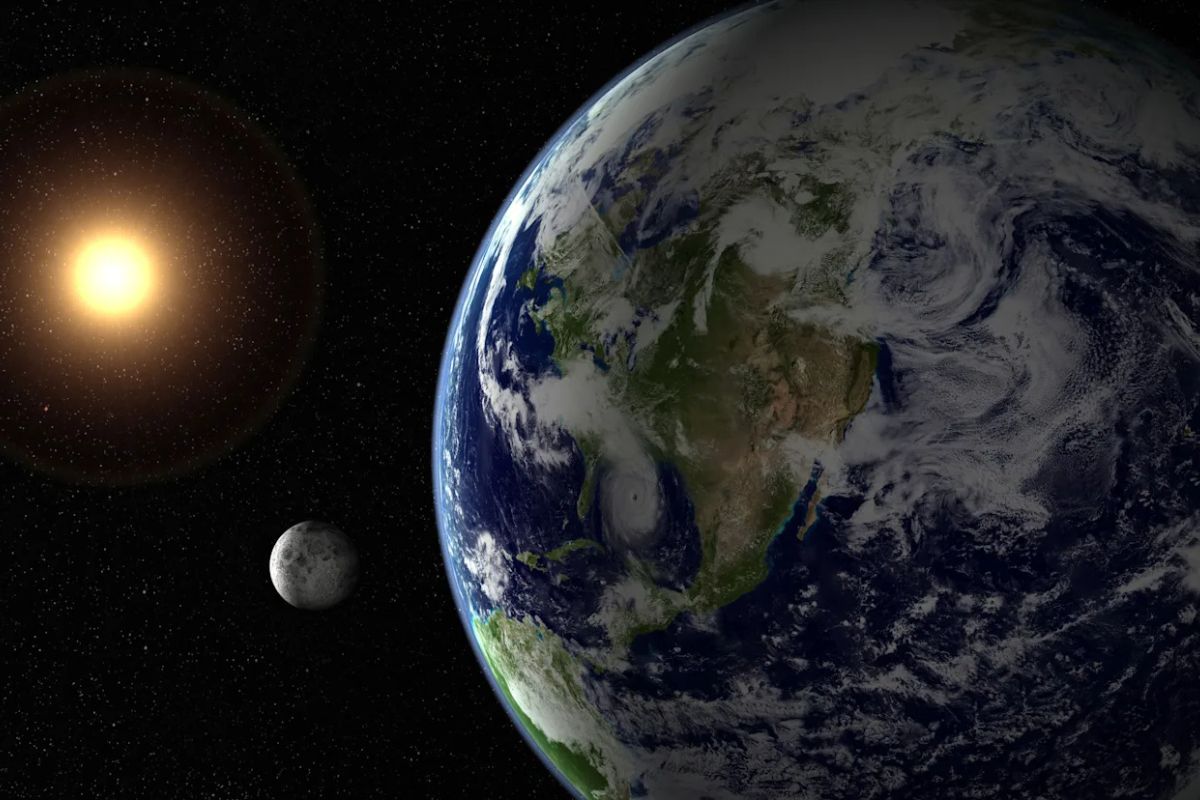
Did you know that Earth’s rotation is not as constant as you might think? On July 9, 2025, our planet will continue its daily spin, but there are some fascinating details about this rotation that might surprise you. From the slight wobble known as the Chandler wobble to the impact of the moon’s gravitational pull, Earth’s rotation is a complex dance influenced by various factors. Why does Earth’s rotation matter? It affects everything from our day-night cycle to weather patterns and even GPS accuracy. Understanding these facts can give you a new appreciation for the planet we call home. Buckle up as we explore 25 intriguing facts about Earth’s rotation on this specific date!
Earth's Rotation: A Daily Dance
Earth's rotation is a fascinating phenomenon that affects our daily lives in countless ways. On July 9, 2025, this rotation will continue to influence everything from the length of our days to the behavior of our weather systems. Let's dive into some intriguing facts about Earth's rotation.
-
Earth rotates on its axis once every 24 hours, creating the cycle of day and night.
-
The axis of rotation is tilted at an angle of 23.5 degrees, which is responsible for the changing seasons.
-
This tilt means that different parts of Earth receive varying amounts of sunlight throughout the year.
-
The speed of Earth's rotation at the equator is about 1,670 kilometers per hour (1,037 miles per hour).
-
As you move towards the poles, the rotational speed decreases significantly.
-
The rotation of Earth causes the Coriolis effect, which influences wind patterns and ocean currents.
Historical Perspectives on Earth's Rotation
Understanding Earth's rotation has been a journey through history, with many ancient civilizations contributing to our knowledge.
-
Ancient Greek astronomer Hipparchus was one of the first to suggest that Earth rotates on its axis.
-
In the 16th century, Nicolaus Copernicus proposed a heliocentric model, placing the Sun at the center of the solar system and Earth in motion around it.
-
Galileo Galilei's observations of Jupiter's moons provided further evidence for Earth's rotation and revolution around the Sun.
-
Isaac Newton's laws of motion and universal gravitation helped explain the mechanics of Earth's rotation.
-
The Foucault pendulum, invented by Léon Foucault in 1851, demonstrated Earth's rotation through its changing swing direction.
Effects of Earth's Rotation on Daily Life
Earth's rotation impacts various aspects of our daily lives, from timekeeping to weather patterns.
-
The rotation of Earth is the basis for our 24-hour day, divided into 24 time zones.
-
Daylight Saving Time, practiced in many countries, adjusts the clock to make better use of daylight during the longer days of summer.
-
The rotation affects the length of a day, which is not exactly 24 hours but approximately 23 hours, 56 minutes, and 4 seconds.
-
Earth's rotation causes the phenomenon of the sunrise and sunset, creating the beautiful transitions of dawn and dusk.
-
The rotation also influences the jet streams, which are fast-flowing air currents in the atmosphere that affect weather patterns.
Scientific Discoveries and Earth's Rotation
Scientific advancements have deepened our understanding of Earth's rotation and its implications.
-
The discovery of the Earth's precession, a slow wobble in its rotation axis, helps explain long-term climate changes.
-
Satellite technology allows scientists to measure variations in Earth's rotation with incredible precision.
-
The study of Earth's rotation has led to the development of atomic clocks, which are used to keep highly accurate time.
-
GPS technology relies on precise measurements of Earth's rotation to provide accurate location data.
-
Research on Earth's rotation has contributed to our understanding of other celestial bodies and their movements.
Fun Facts About Earth's Rotation
Here are some fun and lesser-known facts about Earth's rotation that might surprise you.
-
Due to Earth's rotation, the planet is slightly flattened at the poles and bulging at the equator, a shape known as an oblate spheroid.
-
The rotation of Earth is gradually slowing down due to tidal forces caused by the Moon's gravity, adding about 1.7 milliseconds to the length of a day every century.
-
If Earth stopped rotating suddenly, the atmosphere would continue moving at the equator's rotational speed, causing catastrophic winds and destruction.
-
The fastest sunrise and sunset occur at the equator, where the Sun appears to rise and set almost vertically.
Earth's rotation is a complex and captivating subject that continues to intrigue scientists and laypeople alike. Each fact reveals a little more about the intricate dance that keeps our planet in motion.
The Final Spin
Earth’s rotation is a fascinating dance that affects everything from our days to our climate. On July 9, 2025, this rotation will continue to shape our world in ways we might not always notice. From the Coriolis effect influencing weather patterns to the slight changes in day length due to tidal forces, Earth’s spin is a constant yet dynamic force.
Understanding these facts helps us appreciate the intricate balance of our planet. It’s not just about knowing that Earth spins; it’s about recognizing how this rotation impacts our daily lives. So next time you watch a sunrise or feel the wind on your face, remember the incredible forces at play.
Keep these facts in mind, and you’ll see the world with a bit more wonder. Earth’s rotation isn’t just a scientific concept; it’s a vital part of our everyday experience.
Was this page helpful?
Our commitment to delivering trustworthy and engaging content is at the heart of what we do. Each fact on our site is contributed by real users like you, bringing a wealth of diverse insights and information. To ensure the highest standards of accuracy and reliability, our dedicated editors meticulously review each submission. This process guarantees that the facts we share are not only fascinating but also credible. Trust in our commitment to quality and authenticity as you explore and learn with us.
